| Article ID | Journal | Published Year | Pages | File Type |
|---|---|---|---|---|
| 10051664 | The Journal of Urology | 2005 | 8 Pages |
Abstract
Hypogonadism is likely a fundamental component of metabolic syndrome. Testosterone therapy may not only treat hypogonadism, but may also have tremendous potential to slow or halt the progression from metabolic syndrome to overt diabetes or cardiovascular disease via beneficial effects on insulin regulation, lipid profile and blood pressure. Furthermore, the use of testosterone to treat metabolic syndrome may also lead to the prevention of urological complications commonly associated with these chronic disease states, such as neurogenic bladder and erectile dysfunction. Physicians must be mindful to evaluate hypogonadism in all men diagnosed with metabolic syndrome as well as metabolic syndrome in all men diagnosed with hypogonadism. Future research in the form of randomized clinical trials should focus on further defining the role of testosterone for metabolic syndrome.
Related Topics
Health Sciences
Medicine and Dentistry
Nephrology
Authors
NAWRAS MAKHSIDA, JAY SHAH, GRACE YAN, HARRY FISCH, RIDWAN SHABSIGH,
